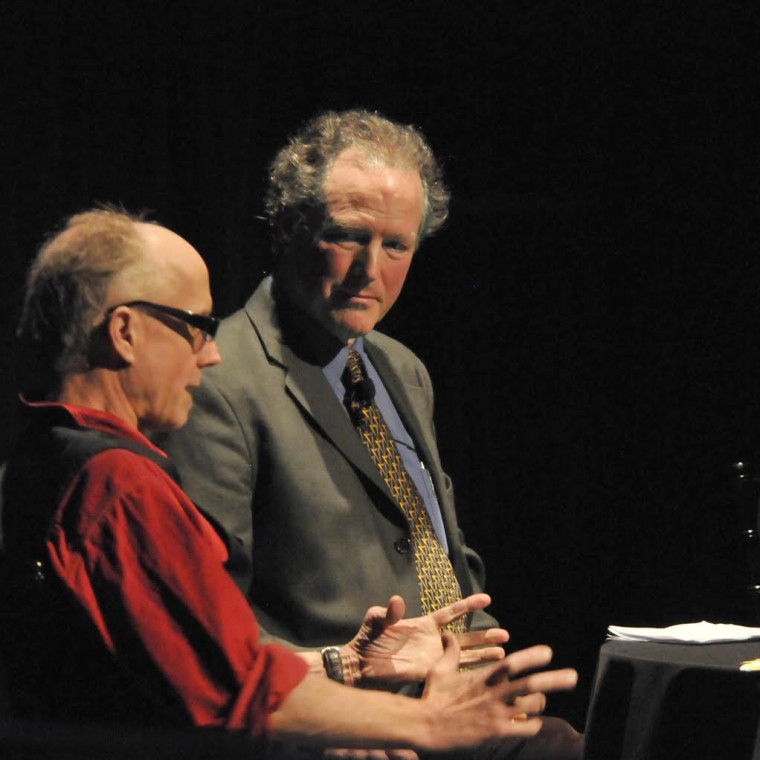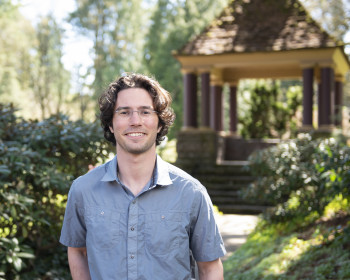Stafford Centennial celebration receives glowing review in Publisher’s Weekly
Open gallery

Even wintery weather didn’t keep crowds from downtown Portland’s sold out Newmark Theatre on February 7. Attendees didn’t want to miss current Lewis & Clark professors Mary Szybist and Kim Stafford honoring renowned poet and former Lewis & Clark professor William Stafford (1914-1993) at the centennial of his birth.
Noted trade publication Publisher’s Weekly attended the festivities and wrote glowingly about the event.
“Literary Arts and Lewis & Clark College commemorated the life of one of Oregon’s most renowned poets and one of the country’s most revered names in the form,” the article stated. “The centennial celebration at the city’s Newmark Theatre featured some of the region’s—and nation’s—most accomplished voices; those, as [host Matthew] Dickman called them, ‘who’ve chosen to engage in that same darkness to create their own light.’”
Associate Professor Mary Szybist, winner of the 2013 National Book Award in Poetry for her book Incarnadine, shared her Stafford inspiration during the evening’s program: the title of her collection comes from a line in Stafford’s poem “Ceremony”: “That was something the ocean would remember:/I saw me in the current flowing through the land/rolling, touching roots, the world incarnadined,/and the world richer by a kind of marriage.”
Oregon’s current poet laureate, Paulann Petersen, spoke to Stafford’s ongoing influence. “With every word he spoke, every word he wrote, with every act, he bore witness to his profound belief in the nonviolent resolution of conflict,” said Petersen. “Each poem, each bit of prose, each is the work of a life-long peacemaker. Seamless. To celebrate William Stafford is to celebrate his vision, his seamlessness. To celebrate William Stafford is to celebrate his peacemaking. And this world can use more peacemaking. More people making those millions of intricate moves required for justice.”
In the end, Dickman hopes “people take some of Stafford’s advocacy for poetry away with them after this event. Stafford celebrated poetry and the poetry of others, he knew it was important for humanity, that it was dangerous because it supported things like empathy and love.”
More Newsroom Stories
Public Relations is located in McAfee on the Undergraduate Campus.
MSC: 19
email public@lclark.edu
voice 503-768-7970
Public Relations
Lewis & Clark
615 S. Palatine Hill Road MSC 19
Portland OR 97219

